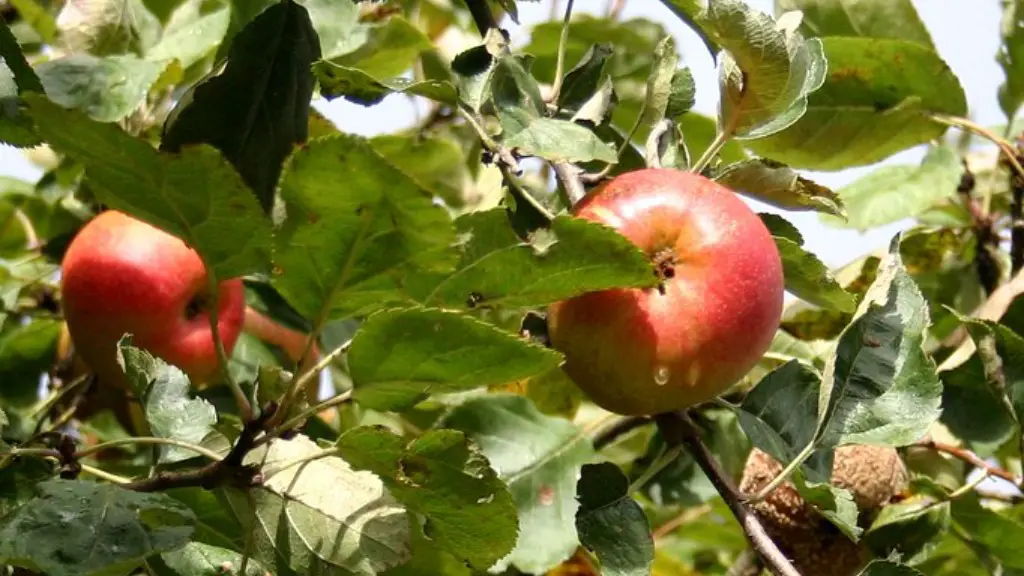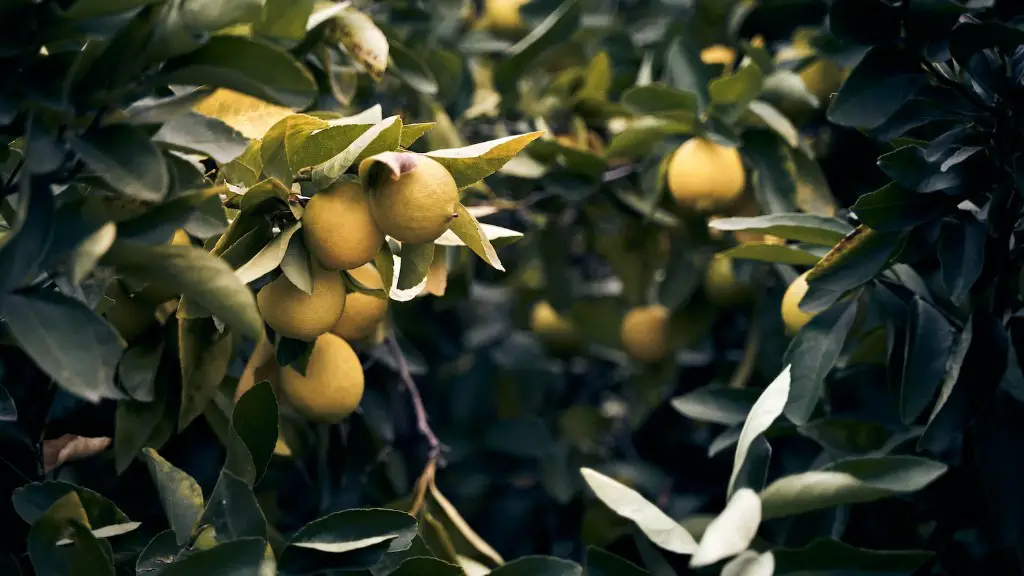It’s natural to be disappointed when your lemon tree fails to bear fruit; after all, a plentiful crop of yellow, juicy lemons is a tantalizing reward for your hard work! Unfortunately, as any experienced gardener knows, not all trees are as fruitful as one might hope. In this blog post, we’ll explore why that may be the case with a lemon tree in particular.
Environmental Needs
The first and most important factor in any fruit-bearing tree’s success is whether the environment meets the tree’s needs. Lemon trees, while hardy, demand specific environmental conditions—namely, a combination of warm temperatures, plentiful sunlight and irrigation. If temperatures are too cold, there may be insufficient pollination, leading to fewer flowers and, consequently, fruit. If the tree is situated in a shaded area, it cannot access the light it needs to bloom and produce viable fruit. And if the tree is not receiving regular water, that can have a huge effect on its development.
Age of Tree
Another key factor is the age of the tree. Young, immature trees will typically take longer to start fruiting than their more mature counterparts. Most citrus trees take a minimum of three to four years until they are of an age where they can produce viable, edible fruit. Patience—and proper care—is a gardener’s best friend here!
Fertilizers
Fertilizers or other soil amendments can have a big impact on the productivity of a lemon tree. To ensure your lemon tree is getting the correct nutrients, use a fertilizer formulated for citrus trees. The ratio of nitrogen, phosphorus and potassium must be in proper balance so that the tree can regenerate its leaves and stems. Additionally, adding organic matter such as compost can add vital nutrients to the soil and give the tree an extra boost.
Pruning
When the lemon tree is set up with the correct conditions, proper pruning can ensure the health of the tree and maximize the number of flowers it produces. Pruning away any dead or dying stems, thorns and branches on a regular basis will encourage more new growth and a larger crop.
Pollination
In addition to providing a healthy environment, the presence of pollinating insects is essential in order for the lemon tree to bear fruit. Without bees, the flowers of the tree simply cannot be fertilized, resulting in no fruit. If there is a lack of pollinators in your garden, supplement by hand pollinating with a small paintbrush.
Pest Control
In this day and age, pests are an unavoidable foe. There are several pest species that can wreak havoc on lemon trees, including mites, mealybugs, thrips and aphids. Proper pest control is the best defense against these unwelcome intruders; utilize insecticidal soaps or horticultural oils to reduce the damage they can cause to the tree and its crop.
Nutritional Imbalance
It may also be the case that your lemon tree is not producing fruit because it has a nutritional imbalance. A deficiency in certain trace elements, including manganese and zinc, can lead to poor fruit development—and thus fewer edible lemons. To ensure your tree is getting the right minerals, be sure to check your soil pH and add soil amendment compounds as needed.
Lighting Conditions
Lemon trees love light, but too much of it can do more harm than good. Like all other citrus trees, lemons need at least six hours of full sun a day, though it is better if they receive eight to ten hours. Too much light, however, can create brown patches on the leaves and slow overall growth. Therefore, it is important to make sure the tree has access to filtered light for the remainder of the day.
Soil pH
Another important factor to consider when it comes to tree fertility is the soil pH. Lemon trees require soil that is slightly acidic, with a pH of between 6.5 and 7.5. If the soil pH is too high or too low, the tree may not be able to take in the nutrients it needs to support life and bear fruit. Therefore, testing the soil pH is one of the most important steps in providing healthy conditions for your lemon tree.
Fungi and Bacteria
Root rot caused by waterlogged soil and fungal infections can be a major factor in reduced yields. The best way to reduce the risk of these infections is to ensure drainage is adequate and the tree is not allowed to stay too wet. Avoid over-watering and replace the soil around the tree on a regular basis.
Diseases
Diseases, such as citrus greening, can have a devastating impact on lemon trees. This bacterial disease, also known as huanglongbing (HLB), is spread by insects, such as the Asian citrus psyllid, and causes the leaves, twigs and branches to die. Unfortunately, once infected, the tree can never recover. The only solution is to remove the tree and any surrounding infected material.
Viruses
The presence of viruses and other harmful pathogens can be yet another reason why a lemon tree may not bear fruit. The most common virus to affect citrus trees is tristeza, which can cause stunted growth, yellowing of leaves, and bark splitting. If the tree’s symptoms seem to match that of tristeza, prompt removal of the lemon tree is the only way to prevent the virus from spreading to other trees.
Natural Conditions
Finally, it’s important to keep in mind that the natural conditions of your garden may also be at play. If the area experiences strong winds, for example, that can damage flowers and prevent them from producing fruit. Additionally, excessive heat can reduce flowering, and extreme cold can result in fruit drop.



